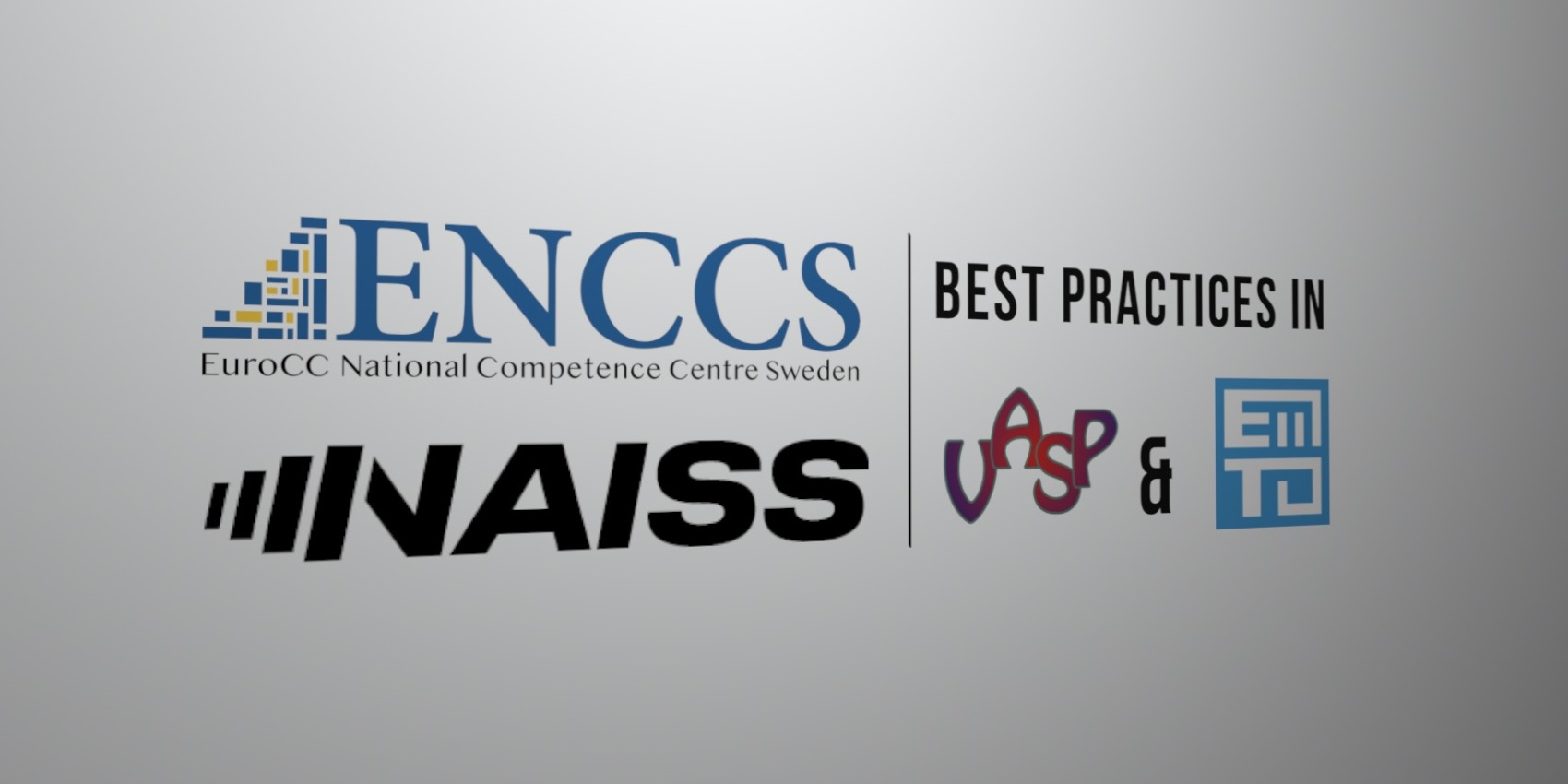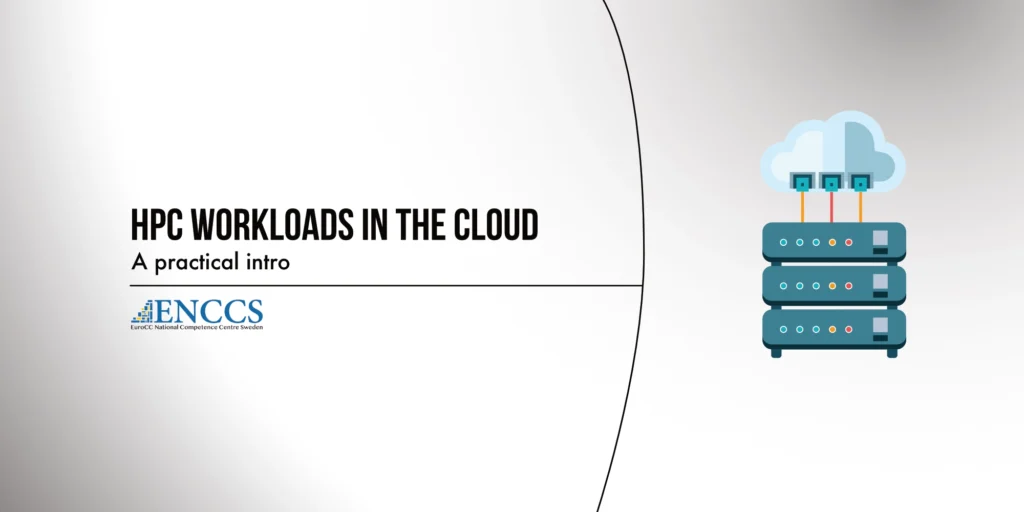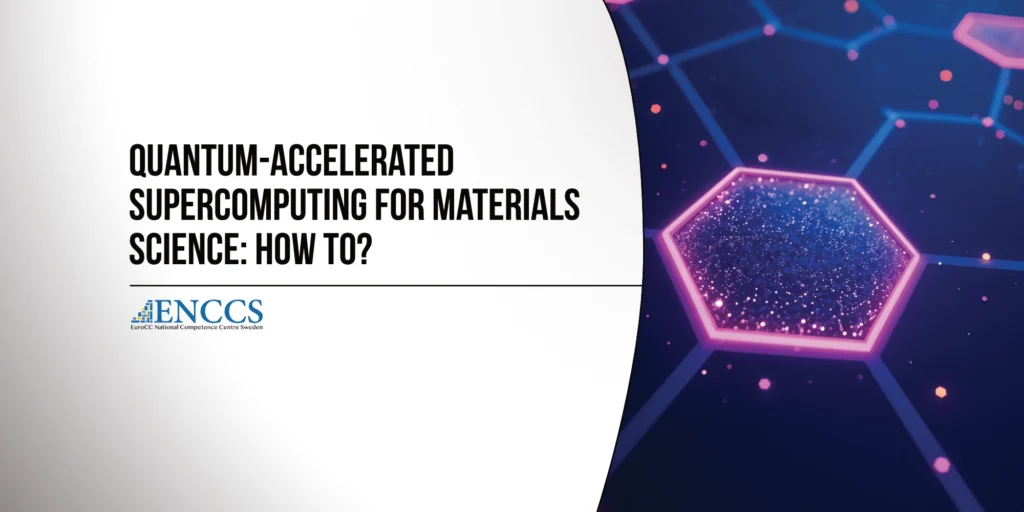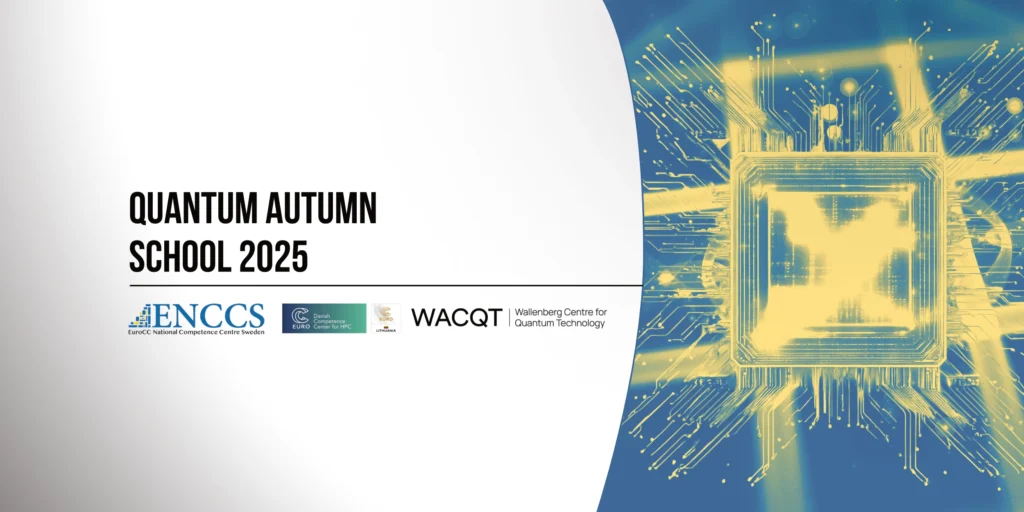
- This event has passed.
VASP/EMTO Best Practices Workshop
16 Apr 2024 • 10:00 – 18 Apr 2024 • 17:00 CEST

ENCCS comes together with NAISS to organise the VASP/EMTO Best Practices Workshop. During the workshop we will showcase how to run the VASP (Vienna Ab-initio Simulation Package) and the EMTO (Exact Muffin-Tin Orbitals) packages efficiently on supercomputers.
Who is this workshop for?
The workshop is mostly suitable for material scientists beginners and intermediate users at different stages and the focus will be on best practices for running VASP and EMTO calculations. Parts of the seminars (to be made available for download) can also be of interest for advanced users.
The codes
VASP is one of the most popular suites of computer codes for atomic scale materials modelling, e.g. electronic structure calculations and quantum-mechanical molecular dynamics, from first principles. It is able to predict and give fundamental insights about many properties of materials, molecular systems, micro and nanodevices, biological systems, in many fields, providing a huge amount of data for data-driven science applications.
EMTO is an all-electron density functional theory code based on using the Exact Muffin-Tin Orbitals (EMTO) formalism used in materials science to represent the single-electron wave functions for the optimised overlapping muffin-tin potential. EMTO was developed by the Vitos Group at KTH since 2000. It has been widely used to explore and design complex alloy systems, especially stainless steels and high entropy alloys/multi-principal element alloys. A short tutorial is availalbe here.
What you will learn
This workshop includes:
- basic theory, DFT and PAW-method
- general introduction to VASP and EMTO, essential files and parameters, workflow
- running VASP at HPC centers, CPUs and GPUs (examples from NAISS)
- performance analysis
- common issues
- post-processing tools
- running VASP/EMTO calculations step-by-step on the Tetralith and LUMI/Leonardo clusters
Prerequisites
This workshop is aimed towards researchers and engineers who already have some previous experience with materials modelling and electronic structure calculations:
- Basic experience with using the command line in a Linux/Unix environment and with working on an HPC system
- Useful but not necessary: basic knowledge of electronic structure theory and/or DFT calculations
Computing resources
Participants will get access to the Tetralith cluster in Linköping and the EuroHPC JU Leonardo Booster cluster for the hands-on sessions.
Tentative agenda
Apr. 16 (Tue)
| Time | Topic |
|---|---|
| 10:00-10:30 | Introduction to ENCCS |
| 10:30-12:00 | EMTO lectures |
| 12:00-13:00 | Lunch |
| 13:00-15:00 | Hands-on session (guided) |
| 15:00-17:00 | Hands-on session |
Apr. 17 (Wed)
| Time | Topic |
|---|---|
| 10:00-12:00 | VASP lectures |
| 12:00-13:00 | Lunch |
| 13:00-15:00 | Hands-on session (guided) |
| 15:00-17:00 | Hands-on session |
Apr. 18 (Thu)
| Time | Topic |
|---|---|
| 10:00-12:00 | VASP lectures |
| 12:00-13:00 | Lunch |
| 13:00-15:00 | Hands-on session (guided) |
| 15:00-17:00 | Hands-on session |
Disclaimer
Due to EuroCC2 regulations, we CAN NOT ACCEPT generic or private email addresses. Please use your official university or company email address for registration.
This training is for users that live and work in the European Union or a country associated with Horizon 2020. You can read more about the countries associated with Horizon2020 here https://ec.europa.eu/info/research-and-innovation/statistics/framework-programme-facts-and-figures/horizon-2020-country-profiles_e










